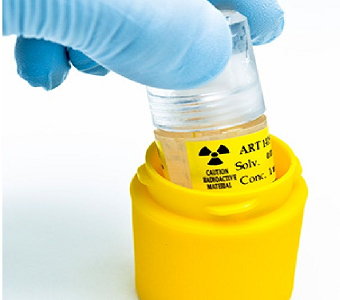We continue to believe that shares of Elan Corp. (NYSE:ELN) are trading at a premium valuation, given ongoing speculation that partner Biogen-Idec (NASDAQ:BIIB) may acquire the company for the full economics to Tysabri. Biogen markets ELN’s primary value driver, Tysabri, a treatment for multiple sclerosis (MS), the centerpiece of such speculation. We have written about our skepticism on such a transaction, citing reports from other sources indicating that BIIB is not currently moving forward with such plans – which you can read here. However, some analysts continue to support ELN by keeping the speculation alive. In fact, ELN rallied on October 12 after a Bernstein analyst noted the Biogen take-out speculation.
Interestingly, the arrangement between BIIB and ELN may offer unique insights into the relationship between the two companies, and in our view, the tactics for how both Tysabri and BG-12 will be marketed supports the speculation that no deal is on the table, and that growth of Tysabri sales is likely at risk when BG-12 hits the market.
Based on the agreement between BIIB and ELN, sources have told us that BIIB must hire a separate sales force to market BG-12, and BIIB is in the process of doing so. Under the Tysabri deal, BIIB is not allowed to use its existing salespeople experienced in the MS segment to sell BG-12, so it had to go outside the company to hire a new BG-12 sales team. Of course, if BIIB was interested in buying ELN, hiring two MS sales forces would make no sense, therefore, this is a strong indication that BIIB has made its decision not to acquire the rights to Tysabri that it doesn’t already own. Because of this arrangement, we have heard that when existing BIIB sales reps were told they will be unable to sell BG-12 and would have to compete with a new sales force in the field, many top performers left to find other sales jobs. While ELN is potentially pushing this tactic to pressure BIIB into a deal, BIIB has pushed back and is moving on with its plans to concentrate its resources on BG-12. We believe BIIB is not going to consider any strategic moves with ELN until it sees the strength of BG-12’s real world potential, and also sees the real world impact of this new therapy on Tysabri’s sales base.
The battleground between Tysabri and BG-12 is expected to be in the high-prescribing segment of neurologists that specialize in treating MS, not the academic centers where Tysabri has a strong foothold or community neurology practices that treat various conditions and use little Tysabri because of the risks. Importantly, MS specialists currently use Tysabri as well as Teva’s (NYSE:TEVA) Copaxone or Novartis’ (NYSE:NVS) Gilenya when patients can’t tolerate first-line interferon-based treatments like BIIB’s flagship Avonex product. With BG-12 coming to the market, the fear for ELN is that the MS specialists will have so many alternatives, including Sanofi-Aventis’ (NYSE:SNY) new treatment Aubagio, that new patients will be far less likely to receive Tysabri than they are today, given the drug’s notorious side effect profile. With two separate sales forces being deployed at BIIB, there could be more competition between Tysabri and BG-12 than most analysts are factoring in.
Given that BIIB does not have to share BG-12’s economics with ELN, it makes sense that BIIB would want to get the most out of this product, even at the expense of Tysabri. Interestingly, the “two-salesforce” model actually feeds this internal conflict. When it comes to obtaining managed care coverage for BG-12, BIIB has a powerful platform to encourage strong reimbursement terms out of the gate, as the company could use the high profit potential on BG-12 and the vast sales base for its Avonex product to cut deals on overall MS treatment costs with health insurance companies.
ELN has been under pressure over the past few months in advance of the potential for BG-12’s launch, and even Thursday, when the FDA pushed back its decision on BG-12 approval by up to 3 months, ELN did not react positively as expected. We note that Bullish analysts on ELN expect Tysabri sales to grow by as much as 26% next year, and if revenues for this key product flatten or decline, the expectation that ELN could become profitable next year also is likely to disappear. At current levels, it appears that the potential risk to ELN far outweighs any potential reward (stock trades at 5.6x sales vs. 5.0x sales for more mature revenue-generating biotech companies). The take out premium on ELN could unravel, particularly given the information about the two separate sales forces selling Tysabri and BG-12 separately. We would stay away from ELN, and we continue to believe the shares could trade sub-$10.





